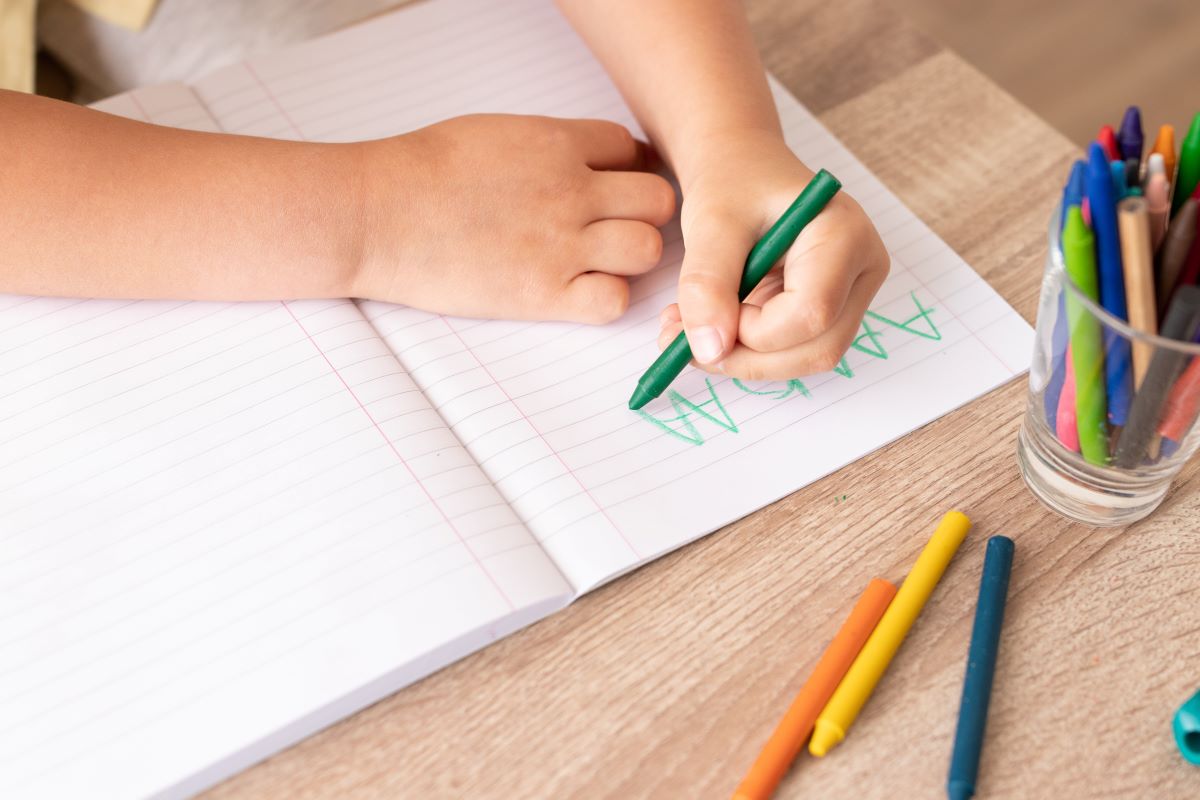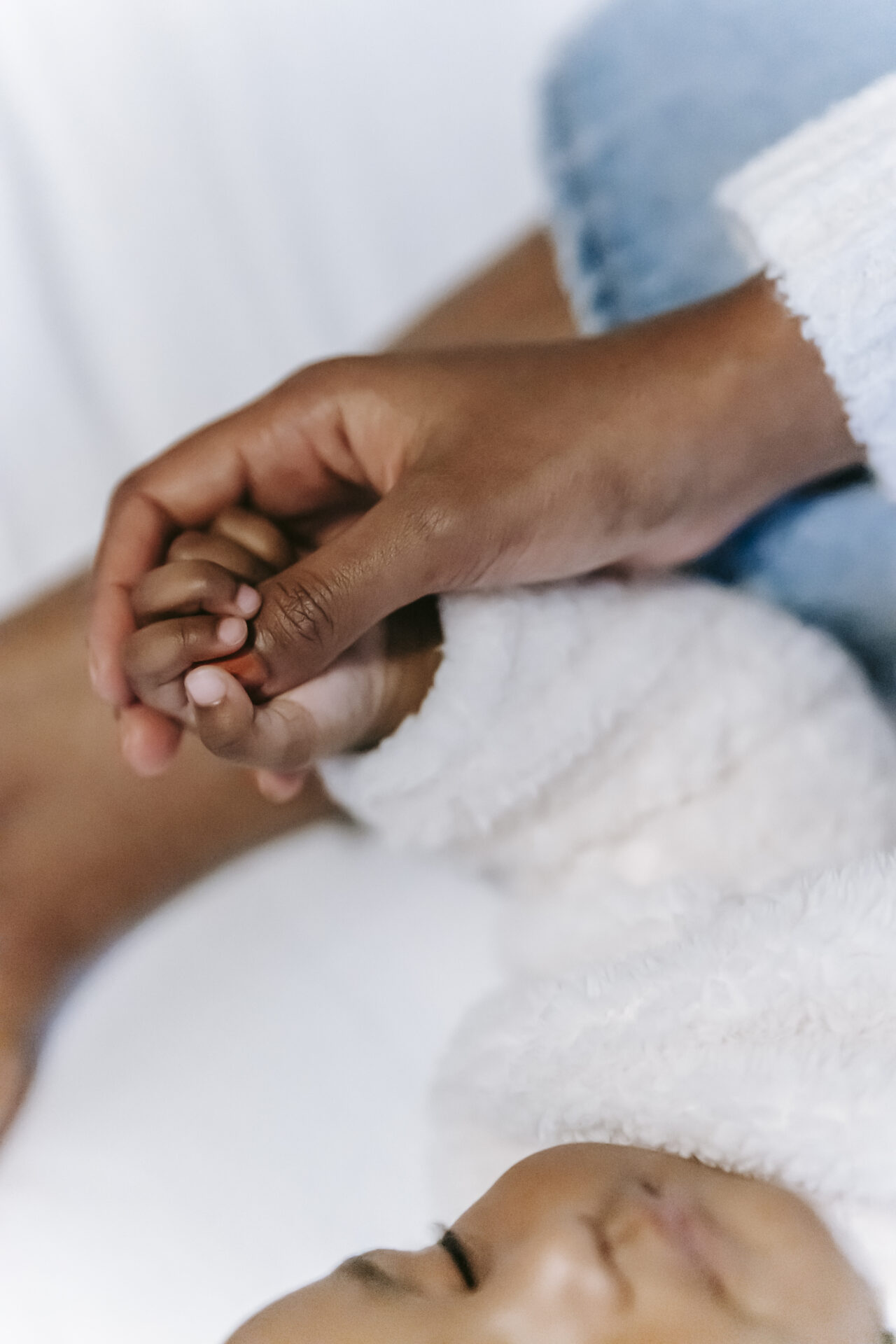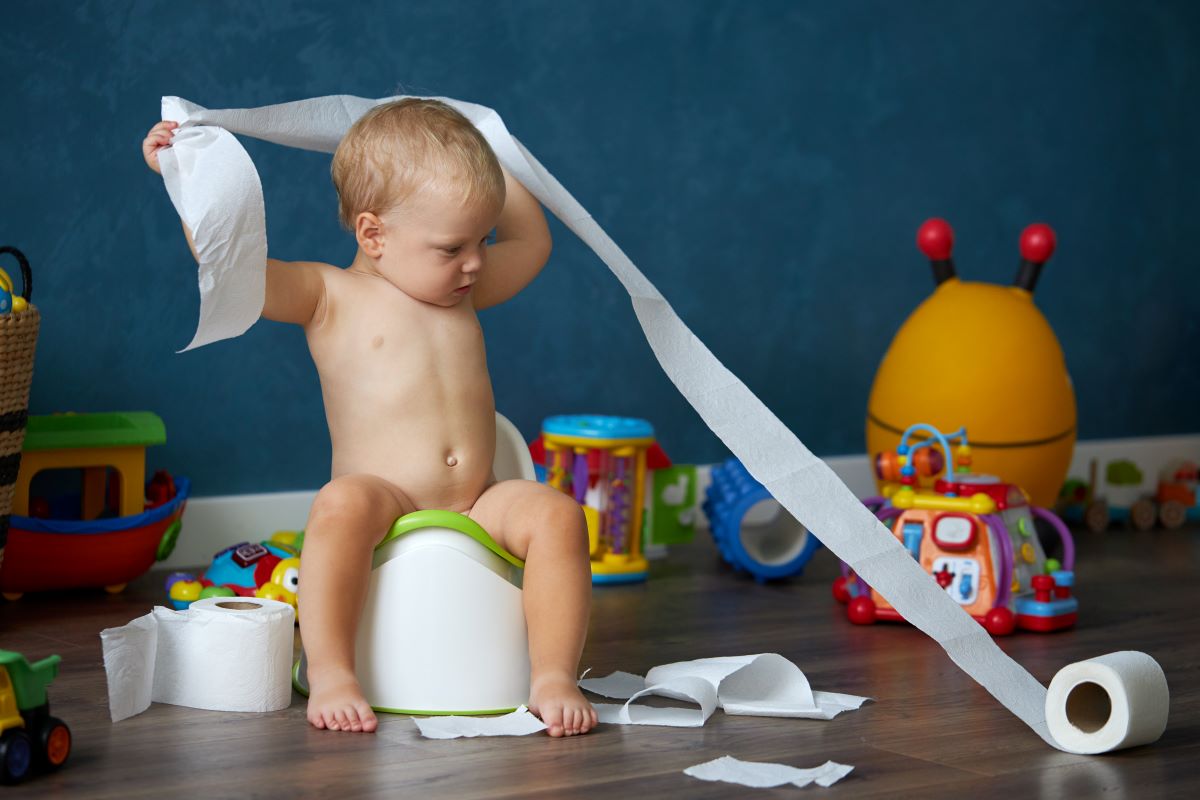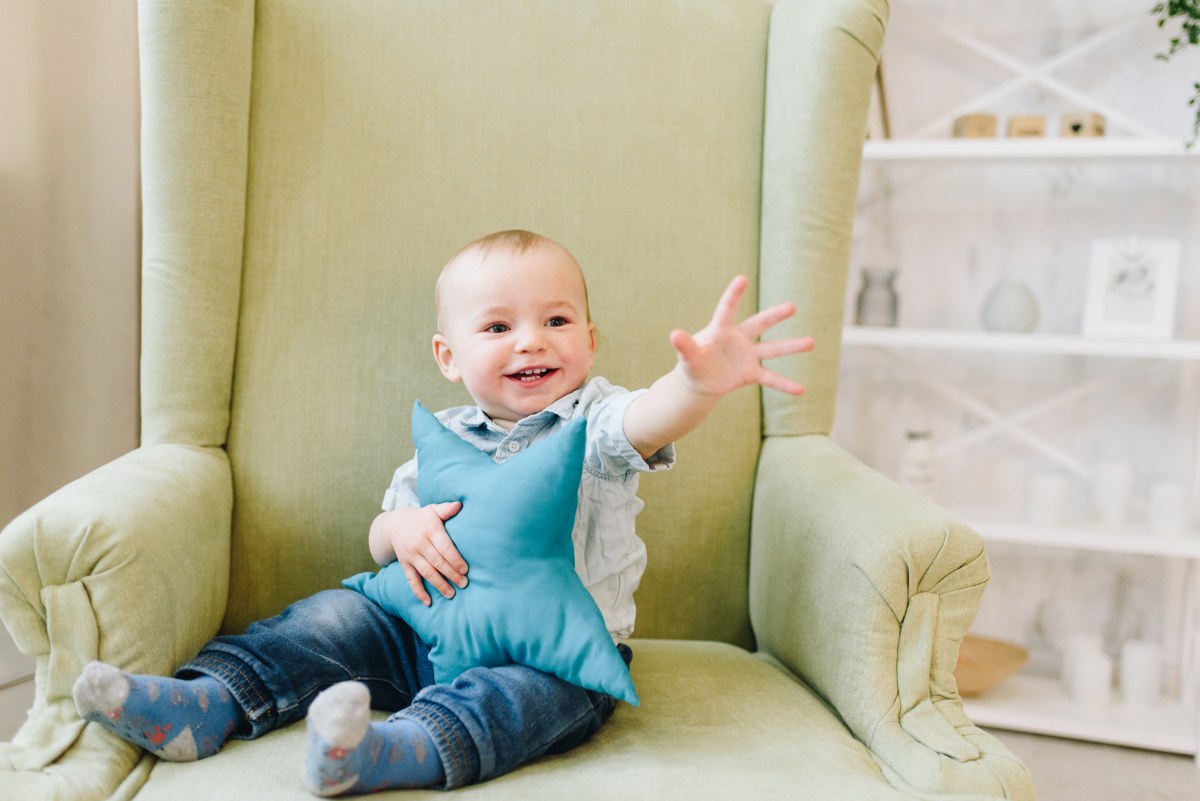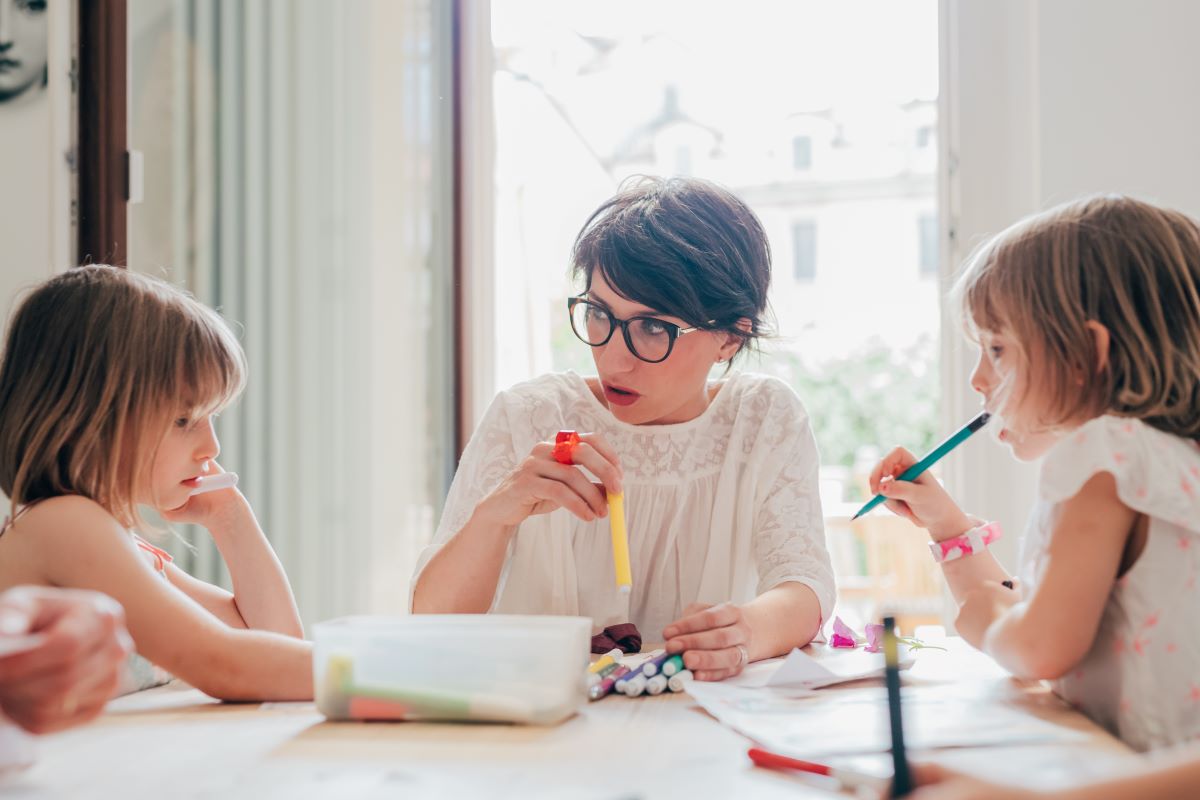In the 8th week, the little embryo takes on human facial features. Its heart beats twice as fast as yours, at about 150 beats per minute. Here we tell you how far the embryo has progressed in its development and what the best tips are against nausea and the like.
Table of contents
Important facts about the 8th week of pregnancy: What you should know
A healthy lifestyle is the be-all and end-all. Make sure you eat a healthy diet and try to cover your daily requirement of folic acid.
Also, stay away from alcohol and nicotine!
Also important: Look for a midwife now. Finding a midwife who is a good match for you is not that easy. Therefore, you should start looking as early as possible.
Exercise is also important to prevent physical discomfort. Aqua gymnastics, walks or yoga can help you relieve tension and also combat the fatigue that is a constant companion of expectant mothers.
What happens to you
While the little embryo is developing in your belly, a lot is happening to you. Numerous symptoms become noticeable and it usually does not remain with abdominal pain and abdominal pain in the 8th week of pregnancy.
The growing uterus presses more and more on your bladder in the 8th week of pregnancy, so you may have to go to the toilet more often than usual. In addition, the pulling in the abdomen during the 8th week of gestation, which is caused by the stretching of your uterine ligaments, continues.
Your uterus is bearing the weight of the embryo and is already getting ready for the coming weeks. Your breasts also change and can become very sensitive.
You should replace the traditional bras you have been wearing until recently with comfortable underwear. One size larger is advisable. Your belly does not show any changes yet. Even if hardly any external changes have taken place in the 8th week of pregnancy, a lot is changing inside your body.
Most of the oxygen is supplied to the little embryo. Since your circulation is running at full speed, you may suffer from fatigue or feel listless. Breathing exercises and walks in the fresh air can help. In the rest of this article, we will tell you what you can do against annoying pregnancy discomforts.
Also interesting:
Tip for expectant fathers
Take care of yourself. Your wife’s hormonal changes often have an impact on your well-being and can also trigger various “pregnancy complaints” in the father.
Pregnancy complaints in the 8th week of pregnancy and what you can do about them
Pregnancy is a wonderful experience. During the nine months a lot changes in your body. This “state of emergency” can bring one or the other pregnancy complaints with it.
We have summarized the best tips for you against annoying pregnancy discomforts.
Nausea
One of the most common pregnancy complaints is nausea. It accompanies many expectant mothers even in the early stages of pregnancy. Often, the sinking feeling is also the first sign of pregnancy.
Nausea and vomiting usually occur for the first time in the 5th week of pregnancy and subside after the 12th week.
The pregnancy hormone hCG and a low blood sugar level are responsible for this. Pay attention to a balanced diet. A walk in the fresh air can work wonders.
Heartburn
Pregnant women often complain of heartburn, which occurs in the 1st and 3rd trimesters. Hormones are also responsible for this. They cause the muscle that closes the transition from the stomach to the esophagus to slacken.
This makes it easier for stomach acid to rise to the top. In addition, the growing embryo steadily increases the pressure on the stomach. This promotes acid reflux.
Make sure you eat easily digestible meals and do not eat too close to bedtime.
Constipation
An unpleasant side effect of pregnancy is constipation. But why is this so? With the growth of the embryo, the intestine is forced out of its usual position and the stomach is pushed upwards.
In addition, due to pregnancy hormones, digestive processes run slower than usual.
You should drink plenty of fluids and make sure you eat a balanced diet to counteract constipation during pregnancy. Physical activity additionally gets the bowel activity going.
Fatigue
Many pregnant women feel tired and listless. Mostly this is caused by iron deficiency. During pregnancy, your blood volume increases by about 1.5 liters.
Nature has arranged this so that there is enough blood to supply the baby, as the unborn child is supplied with nutrients and oxygen via the mother’s blood.
Secondly, as a “stockpile” for the upcoming birth, which is always accompanied by a certain amount of blood loss. However, more blood volume also means that the concentration of iron should be higher during pregnancy.
Especially meat, fish, vegetables and legumes are good sources of iron.
Stretching pain
Due to the growing uterus, there may be pulling to stabbing pain in the abdomen. The uterus straightens at the same time, which affects not only the surrounding organs, but the entire musculoskeletal system.
Heat pads, a massage and regular breaks help against mild pain. Magnesium can also help relieve the pain. If the pain becomes too severe, a doctor should be consulted.
What can be seen on the ultrasound during the 8th week of pregnancy?
Your first check-up is due between the 6th and 10th week of pregnancy. During the first of a total of 3 ultrasound examinations, an image of the embryo is taken.
This determines the size of the embryo and the expected date of birth.
In the 8th WOP, the embryo is about 1.5 cm in size and thus the size of a blackberry. On the ultrasound, the beginnings of the little one’s fingers and toes can already be seen
Elbows and knees are forming on the arms and legs. Soon the arms and legs will be able to move. Around the 8th week of gestation, the bones will also begin to cartilage.
What is the risk of miscarriage in the 8th week of pregnancy?
According to a scientific study, the risk of miscarriage is 9.4% in the 7th week of pregnancy, 4.2% in the 8th week, 1.5% in the 9th week, and 0.5% in the 10th week.
As you can see, the risk decreases as the pregnancy progresses. However, there are some factors that can lead to miscarriage.
Risk factors for miscarriage
- Smoking
- High consumption of caffeine (more than three cups of coffee per day)
- Alcohol consumption
- Uterine malformations
- An autoimmune disease of the mother
- Untreated chronic kidney or thyroid disease
- Infections of the mother at the beginning of pregnancy
- Advanced age of the mother
Possible signs of miscarriage
- Bleeding
- Cramping pain in the lower abdomen
- Pulling in the lower abdomen
- Pain in the lower back
- Fever and purulent discharge
- In advanced pregnancy: leakage of amniotic fluid
Suffering a miscarriage is a tragic loss. You can share your worries with your partner, family or friends. Professional help can also be very helpful in this situation.
What happens to the baby
In the 8th week of pregnancy, the small embryo is about 1.5 cm in size. The beginnings of fingers and toes can already be seen on the ultrasound.
This is how your baby develops in the 8th week of gestation
The development of the whole body and individual organs of the little one is progressing. In the 8th week of gestation, the liver can be seen as a bulge between the heart and the umbilical cord.
The intestine is also developing. For example, in the 8th WOP, the liver appears as a bulge between the heart and the umbilical cord, and the intestine is also developing.
However, it is still too large to fit completely into the abdominal cavity of the baby. Therefore, around the 8th week of gestation, a “loop” enters a section of the umbilical cord.
This leads to a physiological umbilical hernia. Sounds bad, but it is not dangerous, it is quite normal because the intestine grows so quickly.
The embryo is in a bladder filled with amniotic fluid, well protected from shocks, pressure and noise. A few milliliters of amniotic fluid are still sufficient for this. By the time of birth, its volume increases to a good 1 liter.
This is important now
This is how you can support your body in the 8th week of pregnancy
Folic acid is particularly important for the development of the embryo in the 8th week of pregnancy. This is contained in foods such as carrots, beans, fish and tomatoes.
However, these foods can hardly cover the need for folic acid. During pregnancy, you should take about 0.4 mg daily.
Folic acid ensures that the nerves of the embryo develop smoothly. Make sure you lead a healthy lifestyle by avoiding nicotine, alcohol and medication. Take enough vitamins to strengthen your immune system.
Pregnancy is a great challenge for your body. It is all the better if you support it. How you do that best, we explain in this section.
The right diet
Make sure you eat these foods regularly:
- Vegetables
- Fruit
- Whole grain products
- Milk
- Dairy products
- Low fat meat
- Fish
Sports
Light sports – such as yoga, swimming or cycling are recommended by doctors and midwives and are completely safe.
Caution: Not every sport is safe. Talk to your doctor about which sports you should avoid.
8. WOP: When was the child conceived?
Unfortunately, it is not possible to trace the date of conception back to the exact day, since sperm can survive in the uterus for almost a week before fertilizing an egg. In rare cases, fertilization even occurs on the day of sexual intercourse.
Gravidarium
A gravidarium is a very old-fashioned but still commonly used tool by gynecologists. By means of a double turntable, dates such as the absence of the period can be indicated, so that the expected date of birth or the date of conception is shown.
Birth Date Calculator:
The modern version of the gravidarium is a digital due date calculator, which shows you the time remaining until birth at any given moment and often provides helpful tips about the different stages of your pregnancy.
Midwife Tip
It is perfectly normal to be worried during the 8th week of pregnancy. After all, pregnancy is an exciting and unfamiliar situation for you. Mood swings, tiredness or nausea will accompany you more often from now on. However, simple tips and tricks can usually help. If the symptoms do not improve, you can ask your midwife or doctor for advice.
FAQ
In the 7th and 8th week of gestation, the embryo’s facial features form for the first time. In the 8th week it is about 1.5 cm big – like a blackberry.
In the 8th week of pregnancy you should pay attention to a healthy lifestyle. Eat a balanced and healthy diet. Alcohol and nicotine are taboo.
In the 8th week of gestation, the internal organs of the small embryo are formed. It raises its head for the first time and the spine develops.
The first beginnings of fingers and toes can already be seen on the ultrasound.
In the 8th week of pregnancy, the average risk is 4.2 %.
Possible signs of a miscarriage in the 8th week of pregnancy can be bleeding or severe pain in the abdomen.
In the 8th week of gestation, the embryo is about 1.5 cm in size, which is about the size of a kidney bean.
In the 8th week you still have about 32 weeks to go – your due date in the 8th week is therefore in 8 months.
WOP 8 videos
Brianna and Nekole take you through their 8th week of pregnancy.
